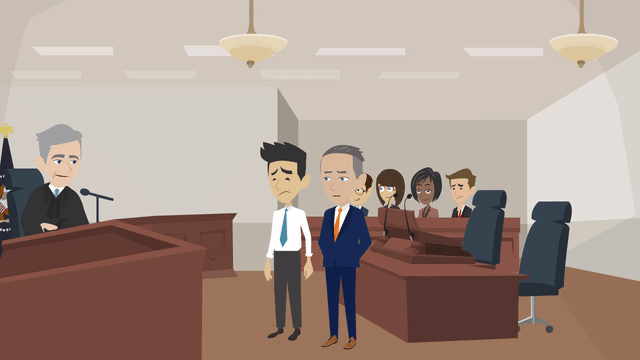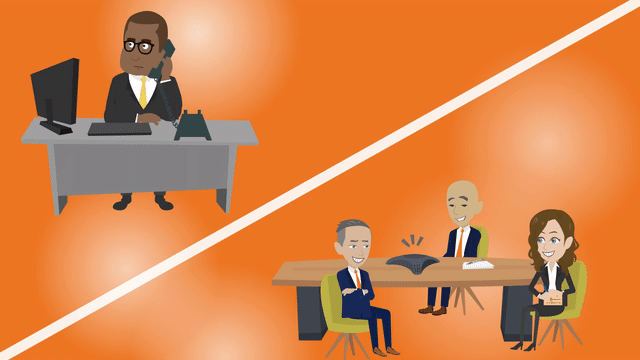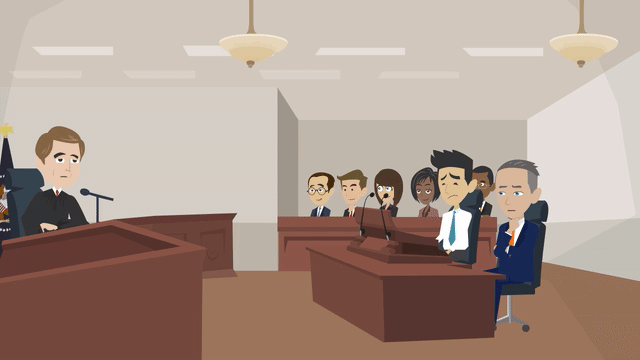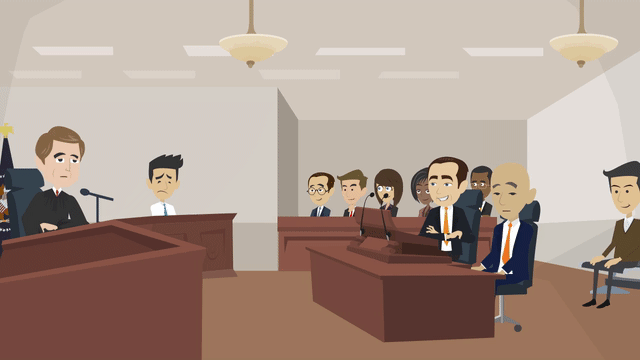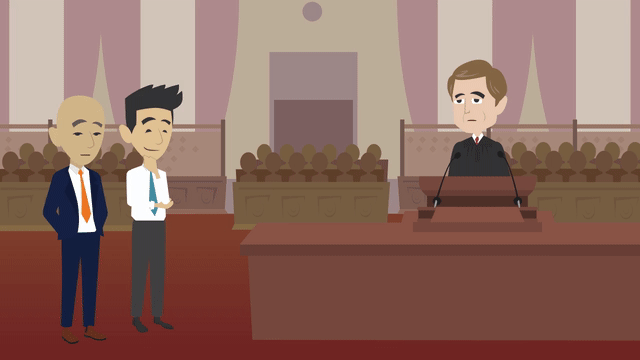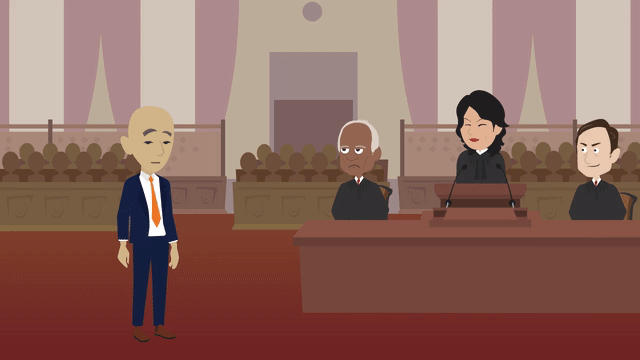Parole Violations | Lawyers & Attorneys
Parole is intended to monitor a person who has been released from prison after being convicted of a felony. Parole supervision requires a parolee to comply with the law and obey certain terms and conditions including treatment if necessary. If you or someone you know has questions about parole or has been charged with violating parole, you should contact a criminal lawyer who handles parole violations.
Frequently Asked Questions About Parole Violations
Our criminal defense lawyers provide answers to some important questions below.
Parole refers to supervision after release from a state prison sentence. Therefore, it is only ever part of a felony conviction and after a person is released from state incarceration.
The length of parole largely depends on the original sentence and when you are released from prison. While parole is handled by local offices around the state, they are state agencies, not county ones.
Parole supervision is the same as post release supervision. Like, parole, post release supervision occurs after release from a state prison sentence. The difference in name is that parole supervision follows an indeterminate state prison sentence while post release supervision follows a determinate state prison sentence.
After being paroled but prior to your formal release, you will receive information about who will supervise you and what your parole conditions are. Depending on the type of conviction there may be restrictions on where you can live upon your release. Parole conditions also may require GPS monitoring, regular drug testing, and obtaining employment.
In most circumstances, if you are alleged to have violated parole, a warrant will be issued, and you will be incarcerated pending the outcome of the violation. An Administrative Law Judge will oversee your case, as opposed to the Judge that originally sentenced you. Also, rather than a county prosecutor, the state will be represented by a Parole Revocation Specialist.
Yes. You have a right to have a preliminary hearing within 15 days of being picked up on the arrest warrant. You have the right to an attorney and should ask to speak with one before making any decisions about conducting, or waiving this hearing.
After conducting or waiving the preliminary hearing, you will be scheduled for a final revocation hearing.
The Administrative Law Judge must find by a preponderance of the evidence that you violated at least one of your parole conditions. You have the right to examine witnesses called against you, through your attorney, and to present evidence on your own behalf.
If you violate parole, depending on the nature of the underlying offense and the severity of the violation, you are placed in one of three categories. For Category 1 violators, you usually face no-less than an additional 15 months’ incarceration. For Category 2 violators, you usually are mandated to take part in a prison drug treatment program such as WILLARD. This typically lasts 90 days. Finally, Category 3 violators, face three to six months in state prison. This time does not include the time already served.
Willard refers to a department of corrections program that is aimed to addressing acute drug addiction. It is usually a 90-day treatment program that will be overseen by the department of corrections and the office of alcoholism and substance abuse services (OASAS). Typically, after graduating from the Willard program, you are returned to parole supervision.
If you are charged with a new crime while on parole, usually your parole officer will seek an arrest warrant for an allegation that this new crime violates the terms and conditions of your parole. You will likely be remanded to jail without the opportunity to post bail while you await final resolution of the new charges.
The “K calendar” refers to an indefinite adjournment when you are on parole and are charged with a new felony. Making admissions at a parole hearing would be detrimental to the new charges against you, and therefore, it is likely that your case will remain on the “K calendar” until the new charges are disposed of. What punishment you face for the parole violation will likely be decided based on the resolution of your new criminal charges. Any conviction will likely result in revocation of your parole and additional state prison time.
If you are charged with a parole violation, you will go to jail until a determination is made about the violation. If it is determined after a hearing or an admission that you violated your parole, you likely face additional prison time.
Timeline of a Criminal Defense Case
- Whether you just made a big mistake, or are being falsely accused, this can be a very emotional and important time in a case
- It is very important that you remain silent and not answer any questions about the case without a lawyer present
- Contact a criminal defense attorney as soon as possible
- Confirm the lawyer is an experienced criminal defense lawyer
- Meet with the lawyer who will help you understand the process of a criminal case
- If you have been arrested, critical proceedings and time frames begin immediately
- You will appear before a judge who will determine if you will be incarcerated, released on bail or supervision, or released without conditions
- If you are charged with a felony in a town, village or city court, the prosecuting agency will have six months from the date of your arrest to determine whether to present your case to a grand jury to seek an indictment or return your case to a lower court to be handled as a misdemeanor
- Discovery is the exchange of information between the governmental agency prosecuting you, you, and your attorney
- In New York State this process begins shortly after your appearance in court
- You can expect exchange of the following if it exists in your case:
- Police Reports
- Investigative Notes
- Videos / Body Camera Footage / Dash Camera Footage
- Forensic Reports
- Photographs
- Exculpatory Material (Brady)
- Impeachment Material
- You and your attorney may also be engaged in information gathering that includes:
- Freedom of Information Law (FOIL) Requests/Responses
- Additional Witness Interviews
- Expert Evaluations / Disclosures
- Motions are written applications to the court to request any of the following:
- Preclude Evidence
- Suppress Evidence
- Seek a Ruling on a Constitutional Rights Violation
- Seek Outright Dismissal of One or More Charges Based on Legal/Factual Matters
- Request Hearings
- A plea bargain is an offer from the prosecuting attorney to resolve your case
- Whether to plead guilty or not is always a choice you get to make, not your attorney
- Your attorney will meet with you, discuss the facts and the law of your case, and offer advice. A plea offer takes into consideration your charges as well as:
- Prior criminal history if any
- Life experiences
- Evidentiary Problems
- Post-Incident Actions
- Mental Health Counseling
- Substance Abuse Treatment
- Anger Management Treatment
- If you choose not to accept a plea bargain and are heading to trial, there are likely to be hearings to consider the following:
- Preclusion/Suppression of Evidence
- Admissibility of Evidence
- What Prior Criminal History/Bad Acts May Be Introduced by the Prosecutor if You Testify on Your Own Behalf
- During a hearing, there is no jury, and the judge will make factual and legal determinations regarding what evidence will be allowed at trial.
- You have the right to a trial by a fair and impartial jury or by the judge who will act as both judge and jury
- At a trial, the prosecution has the burden to prove your guilt beyond a reasonable doubt
- The judge or jury will listen to the evidence presented and the arguments by the lawyers, apply the facts to the law, and render a verdict of not guilty or guilty
- A Verdict must be unanimous
- If you are convicted at trial, or if you entered a plea bargain, there will be a sentencing date where your punishment will be imposed by the judge
- If you previously entered a plea bargain, the judge will likely impose the agreed upon sentence at that time
- In the event you are convicted, you have the right to appeal
- This is true whether you plead guilty or are convicted after trial
- However, by accepting a plea bargain, you may have waived some of your appellate rights
- It is important that your attorney file a notice of appeal on your behalf and that you discuss the appeal process with your lawyer
LaMarche Safranko Law Testimonials
“I can honestly say that the best decision I’ve ever made was retaining George LaMarche as my attorney. I was in a situation where everything wasat risk; my career, livelihood, and the ability to provide for my family. In desperation, I contacted over a dozen attorneys. The majority of the lawyers I spoke with promised results without seeing paperwork or knowing valuable facts….
“Dear Andy,
Thank you so much for everything you have done for our son over the last three years. This has been a very challenging time for our family and the knowledge that our son has an attorney as capable and amazing as you are has given us peace of mind!
“My family and I cannot thank George and his staff enough for all of the support and guidance they have given us over the past six months. Anyone who has ever suffered a personal injury knows how difficult they are to overcome, but I’m glad we had such an intelligent and hardworking attorney on our side so I could focus on my recovery rather than on the details of the case….
“Dear George, Andy and Staff,
Thank you all for your kindness and all your help in getting back to my wellbeing and life. I could not have done it without you all. Everything is going so well again. I recommend you highly. Thanks Again!”
“I wanted to express my deepest appreciation to Mr. Andrew Safranko for the exceptional job he did in regards to my legal representation. Mr. Safranko displayed the utmost in professionalism and discretion during the entire court process, and took the time to explain each and every step….
“No one likes to be in a bad situation, but if you need a lawyer George is your man. Not only does he point you in the right direction he offers good advice for your future. As much as we bring him business he does not encourage that next time anticipation….
“The arrest of my husband in 2008 was an extremely difficult and emotional time for our family. The arrest turned our lives upside down. It was sudden and unexpected and had tragic emotional as well as financial consequences. I had no idea what to do under the circumstances….
“Dear Mr. Safranko,
Thank You so much for answering my question, and so expediently!
The dedication, respect, and consideration with which you treat your clients, current and past, is remarkable. It is why I reached out to you when searching in my time of need, and why I would highly recommend…
“The staff at LaMarche Safranko Law took care of whatever I needed, it was just fabulous. It was top shelf, if I called, I got George. If he was in a meeting, they left him a message. He called me right back after the meeting. Everybody was very courteous and very nice there. If I left a voicemail, everybody got back to me quickly. The level of service was very, very good and I would Highly recommend them.”
“Dear Andrew and George,
I cannot thank you enough for your hard work, diligence, and selfless manner that you put towards my legal difficulties in Colonie. From the first moment I met you, you helped reassure me that things were going to turn out in a more favorable manner than I originally thought. Clearly, the final result of my court case displays the quality of time and work that you put into this….
“I am an attorney who found himself in the middle of a serious, personal legal matter that compromised not only my personal life but my professional life as well. I immediately contacted Andrew (Andy) Safranko, Esq. Andy worked tirelessly and extremely hard to bring my legal situation to a very favorable resolution. In so doing, Andy not only saved certain aspects of my personal and professional life…
“Throughout the attorney client relationship regarding my personal injury lawsuit, George and his staff continually exhibited tremendous amounts of legal knowledge, skill, and a vast amount of expert resources that ultimately resulted in a final judgment in my favor. George was there every step of the way to explain where we stood and what to expect next and there was never a need to question his professional judgment…
“I cannot thank George E. LaMarche lll and his team for the excellent legal work they provided for my son, and in extension, our entire family. His experience, knowledge of the law, networking ability and communication is second to none. In our case, our son was wrongly accused by a small town police officer and charged with 5 tickets…
“I wanted to take this opportunity to thank you for your excellent representation on my recent matter. I have worked with lawyers, and in law firms much of my professional life, but I have never encountered the rare mix of skill, integrity and humanity in one individual—you….




